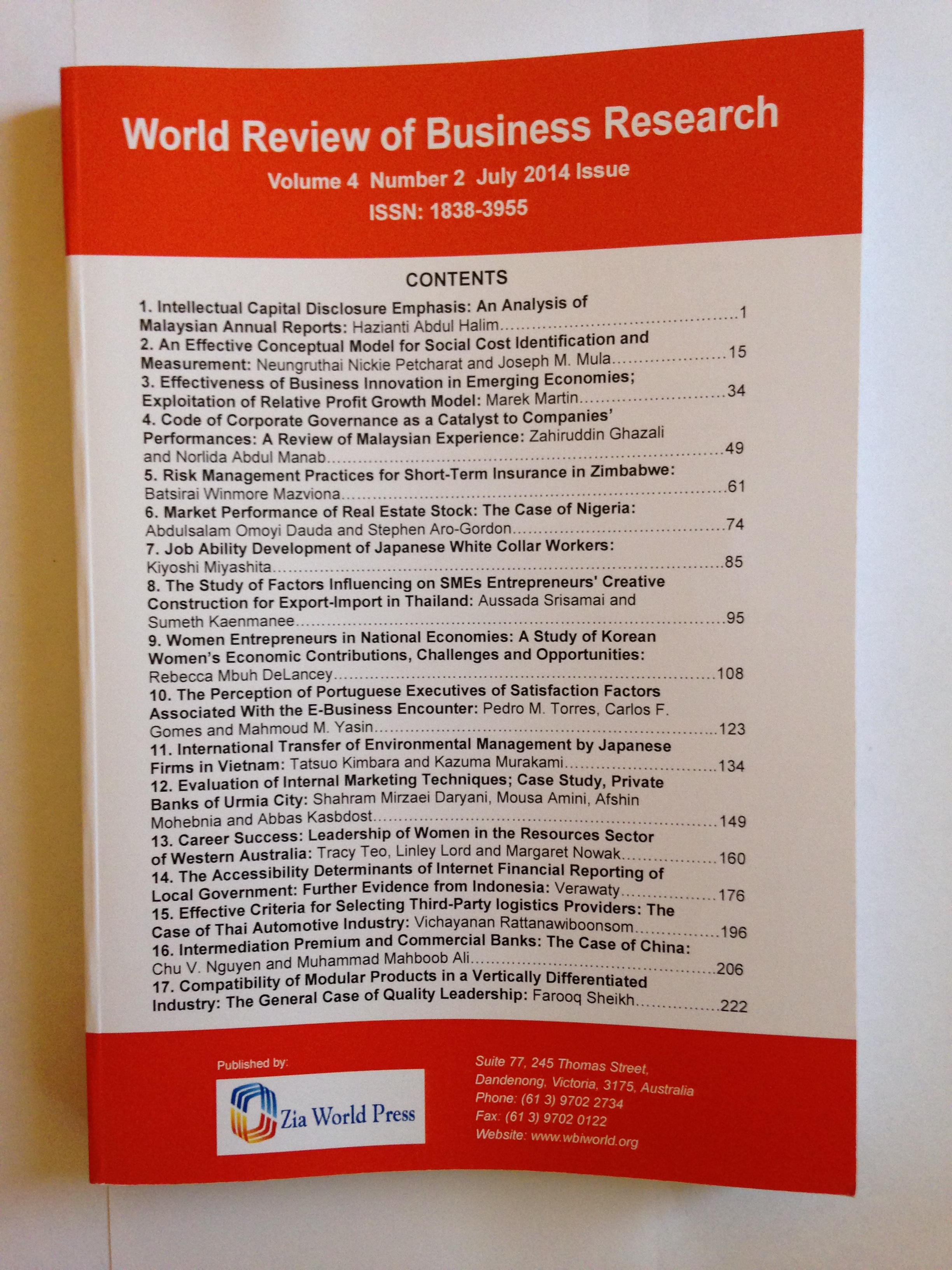October 2016 (World Review of Business Research)
Total Articles - 7

